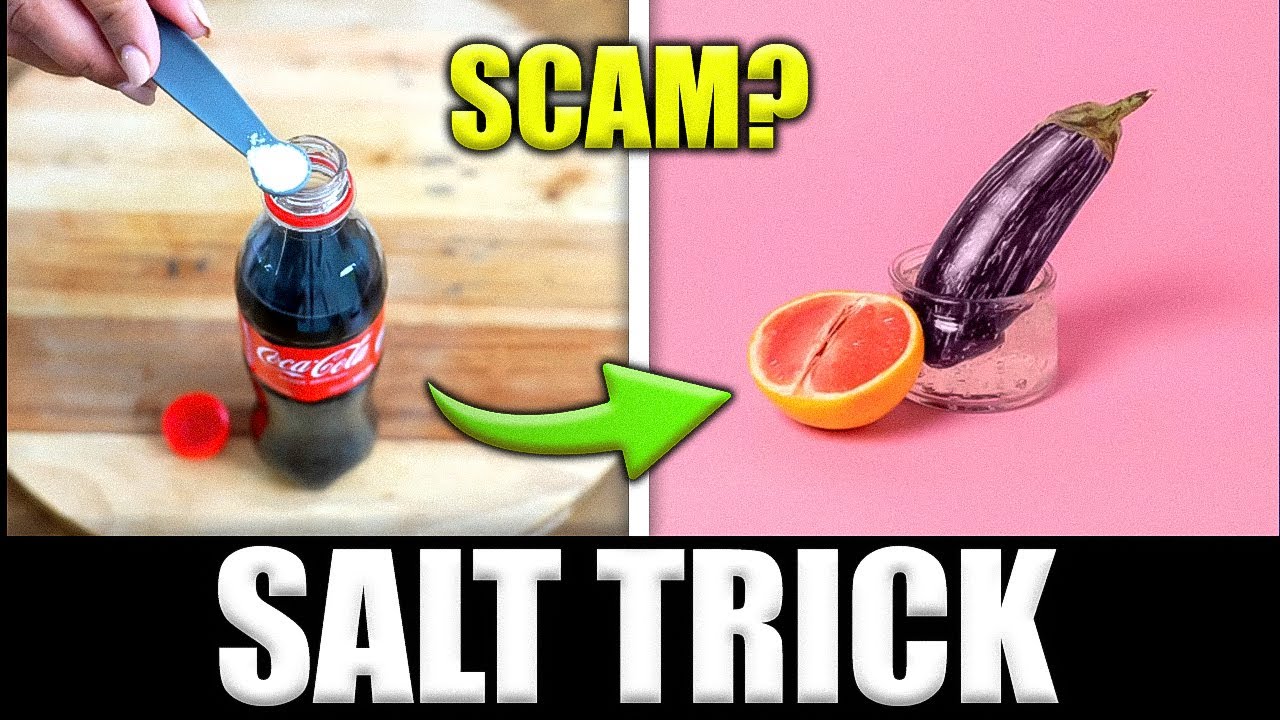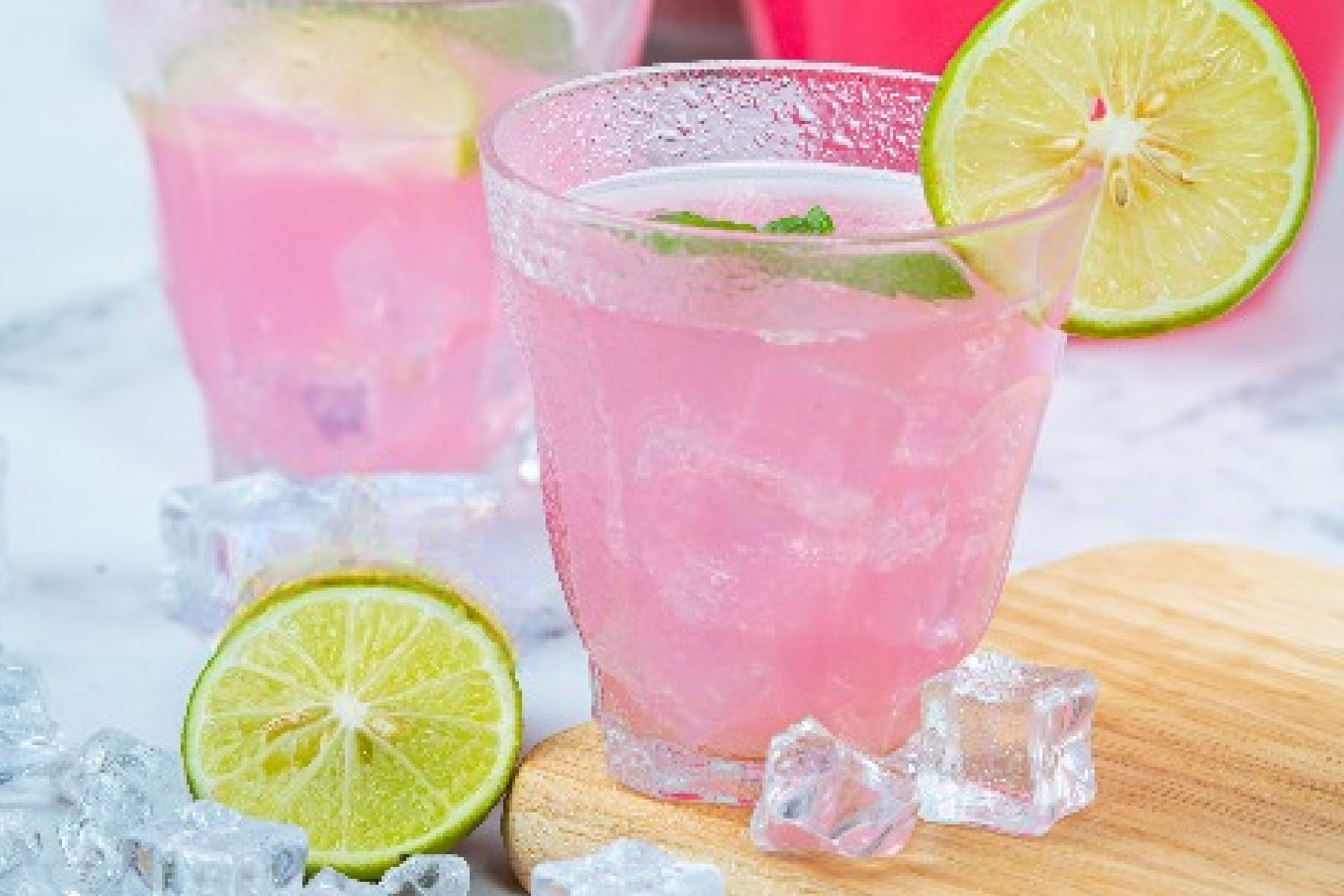Are you familiar with the salt trick and its numerous applications? The salt trick has gained immense popularity in recent years, especially for its effectiveness in various household and health-related solutions. Whether you're using it for cleaning, de-icing, or even as a natural remedy, this simple yet powerful technique has proven to be invaluable.
From ancient times, salt has been a vital resource in daily life. Its versatility and affordability make it a go-to solution for many problems, both big and small. The salt trick taps into these properties, offering practical and cost-effective ways to solve everyday issues.
As we delve deeper into this article, we will explore the science behind the salt trick, its various applications, and how it can be safely used in your home. Whether you're looking for cleaning tips, health remedies, or other creative uses, this guide will provide you with everything you need to know.
Read also:Where To Find Caroline Stardew A Complete Guide To Locating Her In Stardew Valley
Table of Contents
- What is the Salt Trick?
- The History of Salt
- The Science Behind the Salt Trick
- Household Uses of the Salt Trick
- Health Uses of the Salt Trick
- Environmental Impact of Salt Usage
- Common Questions About the Salt Trick
- Tips for Safe and Effective Use
- Alternatives to Salt
- Conclusion
What is the Salt Trick?
The salt trick refers to the practice of using salt to solve everyday problems. This simple yet effective technique leverages the unique properties of salt, such as its ability to absorb moisture, neutralize odors, and act as a natural abrasive. Whether you're dealing with a stubborn stain, icy sidewalks, or even a sore throat, the salt trick can often provide a quick and effective solution.
One of the reasons the salt trick has become so popular is its accessibility. Salt is inexpensive, widely available, and can be used in a variety of ways without the need for specialized equipment. Additionally, it is a natural alternative to many chemical-based products, making it an attractive option for those seeking eco-friendly solutions.
As we explore the various applications of the salt trick, you'll discover just how versatile this method truly is. From cleaning your home to improving your health, the possibilities are endless.
The History of Salt
Origins and Importance
Salt has been an essential part of human history for thousands of years. Ancient civilizations recognized its value not only as a seasoning but also as a preservative and currency. In fact, the word "salary" is derived from the Latin word "salarium," which refers to the payment of Roman soldiers in the form of salt.
Throughout history, salt has played a crucial role in trade and commerce. Salt routes were established across continents, connecting distant lands and cultures. Its importance in preserving food was particularly significant before the advent of refrigeration, making it an indispensable resource for survival.
The Science Behind the Salt Trick
Understanding the science behind the salt trick can help you appreciate its effectiveness. Salt, or sodium chloride, has several key properties that make it ideal for various applications:
Read also:Can Ruffland Kennels Withstand The Pressure A Comprehensive Guide
- Hygroscopic Properties: Salt can absorb moisture from the air, making it useful for dehumidifying and neutralizing odors.
- Abrasive Nature: Salt's granular texture makes it an excellent natural scrub for cleaning surfaces.
- Chemical Reactivity: Salt can react with other substances, such as ice, to lower its freezing point and melt it more effectively.
These properties, combined with its affordability and availability, make the salt trick a practical solution for many common problems.
Household Uses of the Salt Trick
Cleaning Solutions
One of the most popular uses of the salt trick is in household cleaning. Here are some practical examples:
- Removing Stains: Mix salt with water to create a paste and apply it to fabric stains. Let it sit for a few minutes before washing.
- De-greasing Surfaces: Sprinkle salt on greasy surfaces and scrub gently with a sponge for a natural cleaning solution.
- Polishing Silver: Create a saltwater solution and soak your silverware to restore its shine.
By incorporating the salt trick into your cleaning routine, you can reduce your reliance on chemical-based products and save money in the process.
Health Uses of the Salt Trick
Natural Remedies
Salt has long been used in traditional medicine for its healing properties. Here are some common health applications of the salt trick:
- Soothing Sore Throats: Gargling with saltwater can help reduce inflammation and kill bacteria in the throat.
- Relieving Muscle Cramps: Consuming a small amount of saltwater can replenish electrolytes and alleviate muscle cramps.
- Improving Digestion: Adding a pinch of salt to your water can aid in digestion by balancing stomach acid levels.
While these remedies are generally safe, it's important to consult with a healthcare professional before making significant changes to your health regimen.
Environmental Impact of Salt Usage
While the salt trick offers numerous benefits, it's essential to consider its environmental impact. Excessive use of salt, particularly for de-icing roads, can lead to soil and water contamination. Salt runoff can harm aquatic life and alter the natural balance of ecosystems.
To minimize the environmental impact of salt usage, it's important to use it sparingly and explore alternative solutions when possible. For example, eco-friendly de-icers made from natural ingredients can be just as effective without the negative consequences.
Common Questions About the Salt Trick
Q&A Section
Here are some frequently asked questions about the salt trick:
- Is the salt trick safe for all surfaces? While salt is generally safe, it can be abrasive on certain materials. Always test a small area before applying it widely.
- Can I use the salt trick for personal care? Yes, salt can be used in scrubs and other beauty products, but it's important to use fine-grained salt to avoid irritation.
- How much salt should I use for de-icing? Use salt sparingly and consider mixing it with sand or other materials to enhance its effectiveness while reducing environmental impact.
By addressing these common questions, you can make informed decisions about how to use the salt trick effectively and safely.
Tips for Safe and Effective Use
Maximizing the benefits of the salt trick requires proper usage and precautions. Here are some tips to keep in mind:
- Always measure the amount of salt you use to avoid wastage and environmental harm.
- Combine salt with other natural ingredients, such as vinegar or baking soda, for enhanced cleaning power.
- Dispose of excess salt responsibly, especially if it has been used for de-icing or cleaning.
By following these guidelines, you can ensure that the salt trick remains a safe and effective tool in your household arsenal.
Alternatives to Salt
Natural and Eco-Friendly Options
While the salt trick is highly effective, there are alternative solutions worth exploring. For example:
- Baking Soda: A gentle abrasive that can be used for cleaning and deodorizing.
- Vinegar: A natural disinfectant that works well for cleaning surfaces and removing odors.
- Eco-Friendly De-Icers: Products made from natural ingredients that are safe for the environment.
These alternatives can provide similar benefits to the salt trick while reducing potential environmental concerns.
Conclusion
The salt trick is a versatile and effective solution for a wide range of household and health-related issues. By understanding its properties and applications, you can harness its power to improve your daily life. Whether you're cleaning your home, addressing health concerns, or seeking eco-friendly alternatives, the salt trick offers practical and cost-effective solutions.
We encourage you to try the salt trick for yourself and share your experiences with others. Don't forget to leave a comment below or explore other articles on our site for more useful tips and tricks. Together, we can make the most of this simple yet powerful technique!


